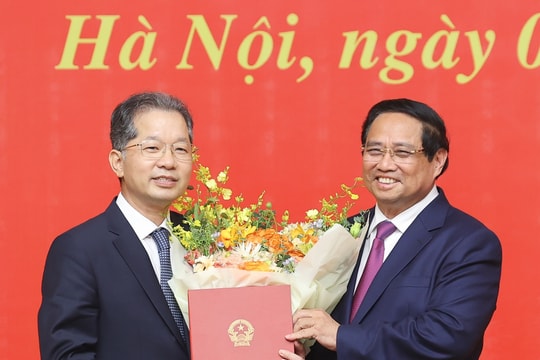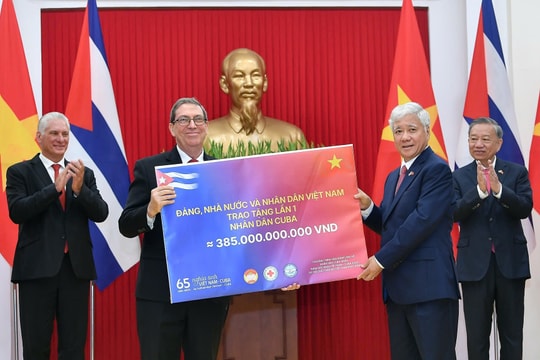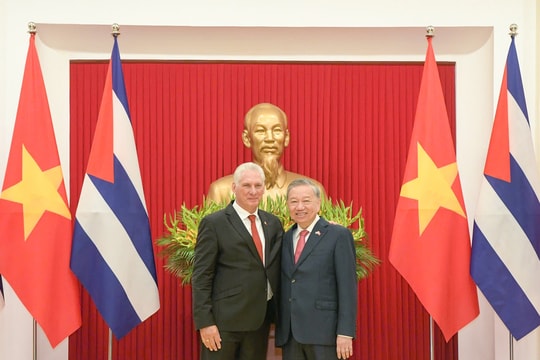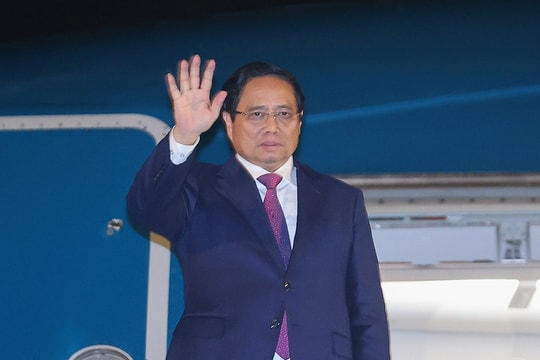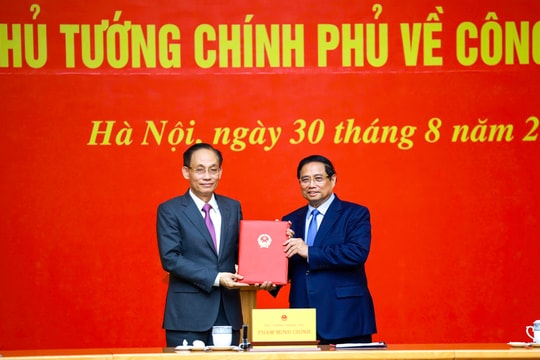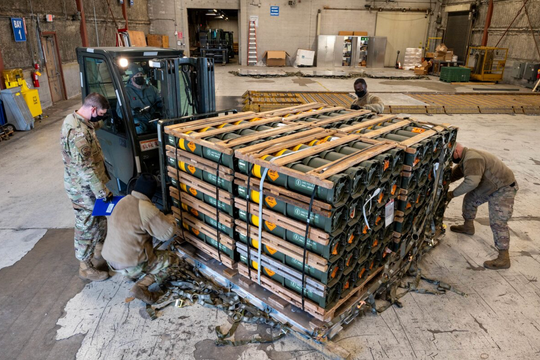Sharing foreign affairs experience to promote local development
(Baonghean.vn) - Choosing the right advantages and characteristics, making specific plans, diversifying inspection forms, promoting local development, attracting support capital, etc. are valuable experiences shared by leaders of the Departments of Foreign Affairs at the Conference of leaders of local foreign affairs agencies and the Summary and training of specialized inspection work in diplomacy.
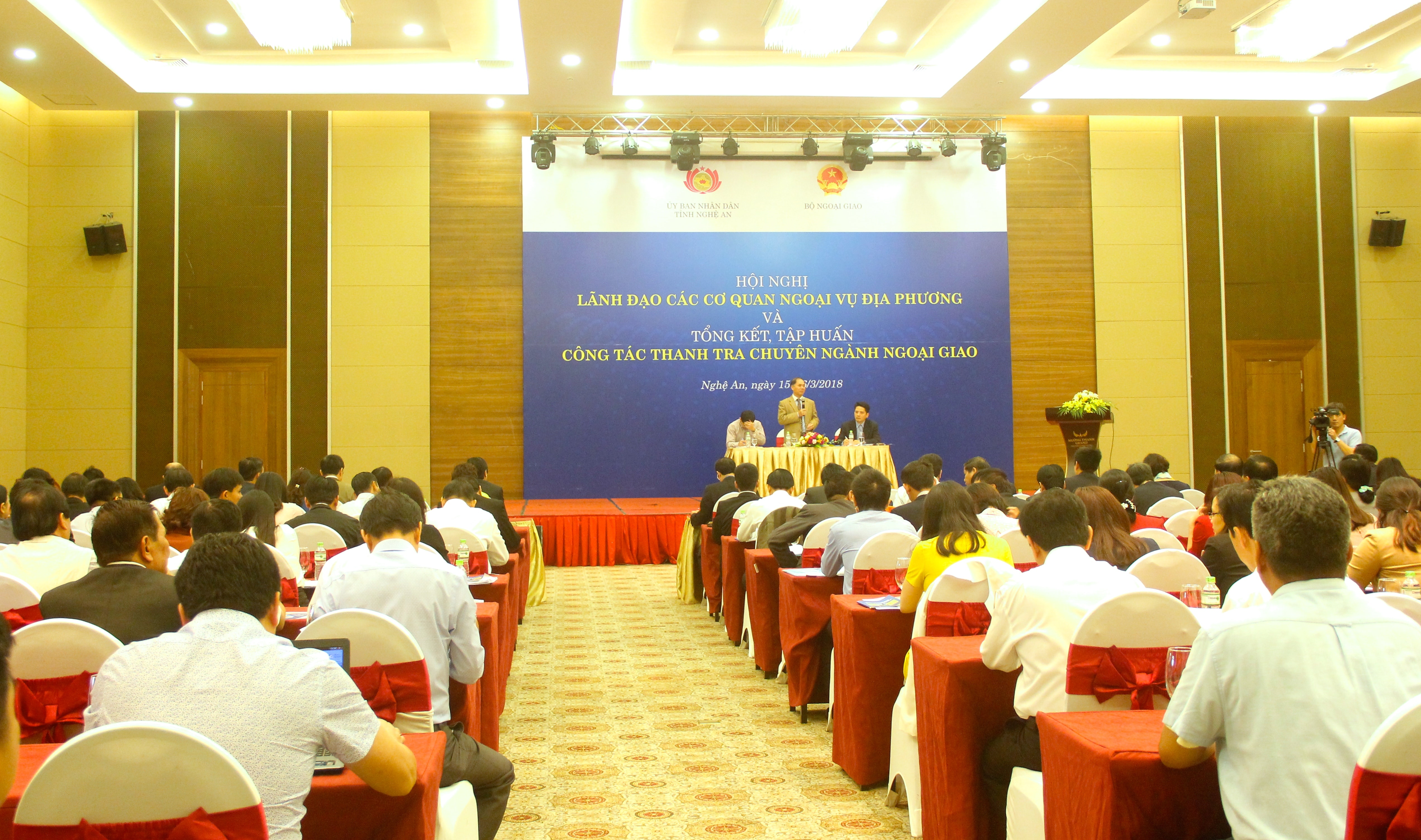 |
| Representative of the Ministry of Foreign Affairs Inspectorate, Chief Inspector Pham Viet Anh provided detailed information on specialized inspection work in 2017 and work direction in 2018. Photo: My Nga |
Quang Tri: Attracting resources from foreign non-governmental organizations (NGOs)
Director of the Department of Foreign Affairs of Quang Tri province Hoang Nam shared that there are currently about 35 foreign non-governmental organizations (NGOs) operating in Quang Tri, of which 12 organizations have project offices. Over the past 10 years, Quang Tri has attracted non-refundable aid NGOs projects with a budget of up to over 110 million USD, contributing nearly 4% of the total social investment capital, bringing practical and important meanings to the work of overcoming the consequences of war and developing the local socio-economy.
The NGO aid has contributed to solving a number of social problems such as job creation, hunger eradication and poverty reduction, especially in poor communes in remote areas and ethnic minorities. Some social problems that the State budget or other sources of capital cannot fully meet include epidemics, gender inequality, domestic violence, etc.
The capital also focuses on supporting the development of socio-economic infrastructure in health, culture, education, agricultural, forestry and fishery development, economic restructuring, contributing to the transfer of modern technology, working methods, advanced management experience, and human resource training for the locality.
Mr. Hoang Nam affirmed that the work of non-governmental organizations contributes to helping Quang Tri implement foreign policies more effectively through the process of cooperation in implementing non-governmental programs and projects in the area, through exchange activities, friendship between people and the international community.
Thanks to the practical results from NGOs, the Director of the Department of Foreign Affairs of Quang Tri province shared inspection experiences such as: focusing on clarifying the contents, goals, and objectives of the project that are required to be reported, completion progress, reasons for not completing, assessing the impact and socio-economic efficiency that the project brings to the locality.
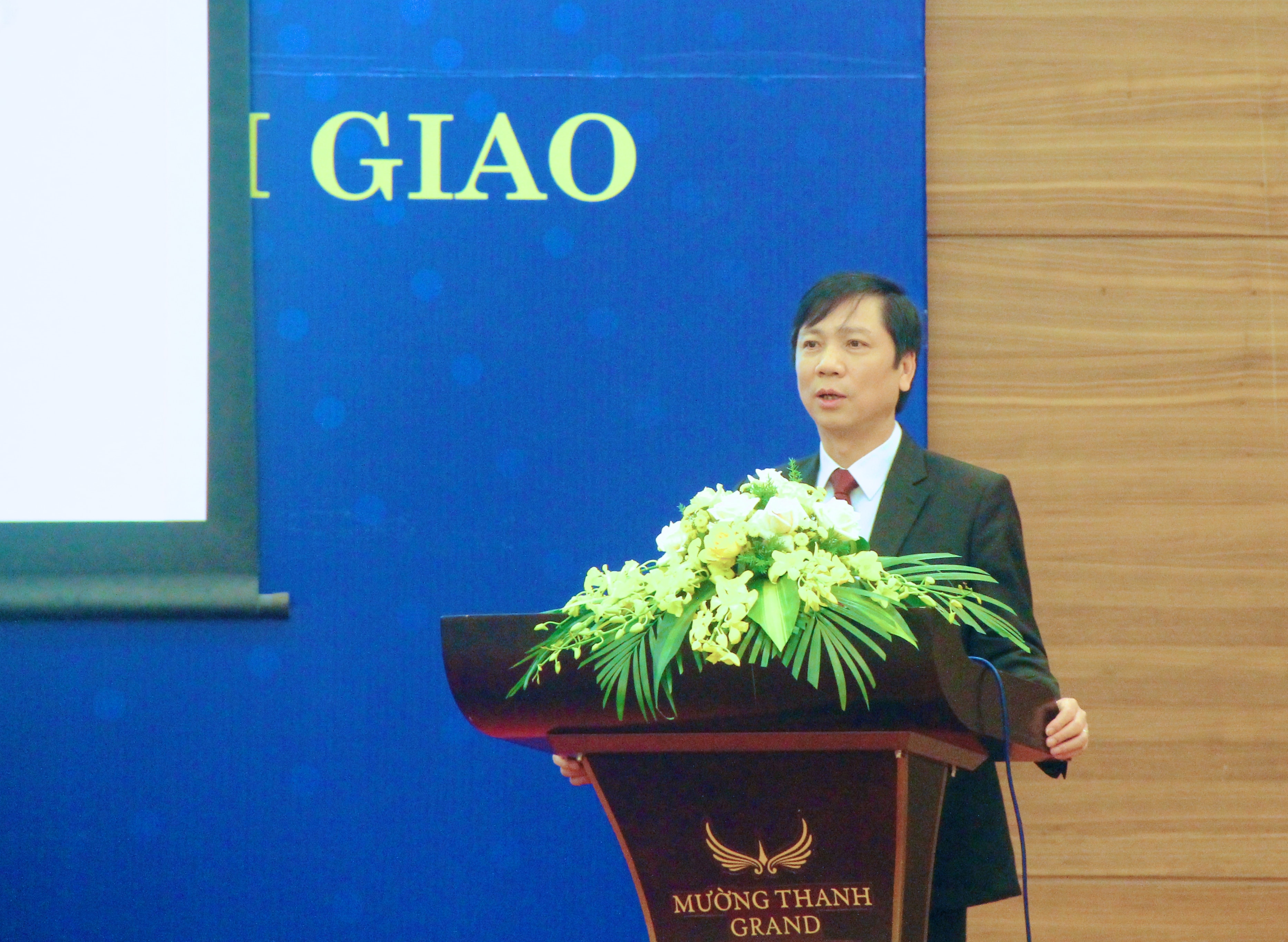 |
| Representatives of the Department of Foreign Affairs actively contributed and shared experiences in foreign affairs inspection work. Photo: My Nga. |
Lang Son: Sanctions are needed, especially for violations of border management.
A representative of the Lang Son Department of Foreign Affairs shared that, being aware of the important task of preserving the sovereignty of the national border and territory, building a peaceful, friendly, cooperative and developing border, Lang Son province pays special attention to the issue of border management.
Through inspections and audits, it is shown that: security on the border is maintained firmly and stably. Exchange and cooperation relations in various fields, the work of resolving border issues strictly implements regulations on territorial border management, friendship, cooperation and respects relevant legal regulations.
However, the Lang Son Department of Foreign Affairs said that through inspection and examination, it was found that the province's border lines are long, with many openings and trails across the border, and the management of entry and exit across the border is still lax, leading to many violations of the 2017 border management regulations on illegal entry and exit. There have been 141 cases of citizens being arrested by China, and 989 cases being pushed back across the border trails.
Some contents of the agreement on land border management regulations between Vietnam and China are not specific and general, causing difficulties for localities in handling. Especially the process of building monitoring, control, and prevention equipment, regulations on border gate works and border gate infrastructure works...
From that reality, to ensure management work, Lang Son Department of Foreign Affairs proposed that the Ministry of Foreign Affairs Inspectorate continue to strengthen sanctions, especially for violations of border management, construction of works on the border and some specific management areas at the local level. Before building sanctions, it is necessary to organize a workshop to collect opinions, because border management work is related to many sectors.
Nghe An: Planning and implementation are the basis of the diplomatic inspection mission
Sharing experiences in diplomatic inspection, Deputy Director of Foreign Affairs of Nghe An province Tran Khanh Thuc said that in order for diplomatic inspection and examination to be carried out effectively, accurately, and to ensure the goals and meanings, when carrying out, it is necessary to research, consider and follow the steps, focusing on specific planning and assigning detailed tasks to each member.
In particular, according to Mr. Tran Khanh Thuc, the initial preparation is extremely important. Drafting a plan and report outline has a great effect in the inspection process. From here, it helps the inspection and examination subjects themselves know what their unit is good at and what limitations and shortcomings exist so that the next time will be better.
"The inspection work is mainly to remind and check together to supplement and overcome the shortcomings" - Deputy Director of Nghe An Department of Foreign Affairs commented.
The purpose is to disseminate knowledge of legal documents on foreign affairs to all sectors and levels through inspections and to answer questions and opinions from the grassroots. Because the foreign affairs sector is a new issue for the grassroots.

.jpg)
